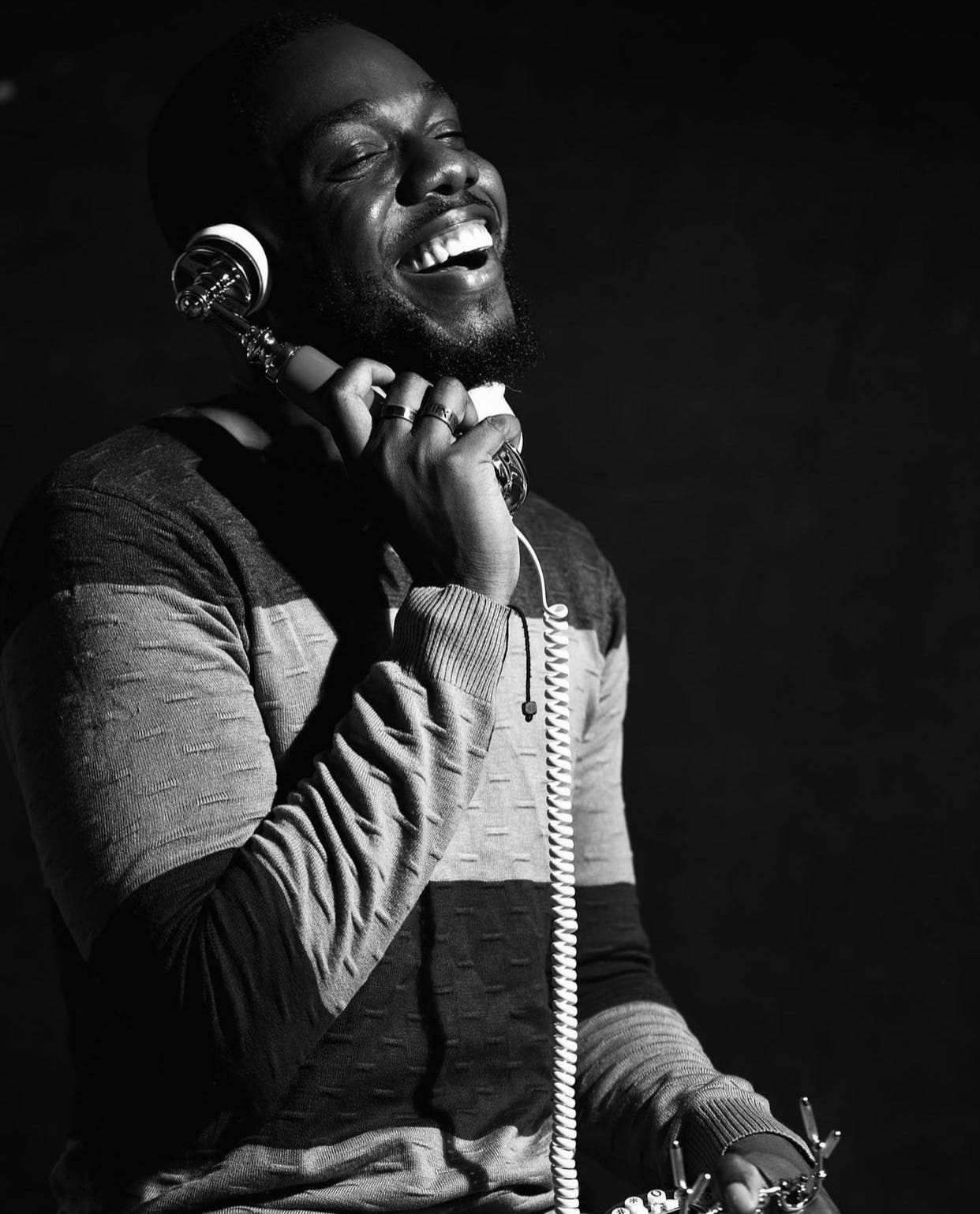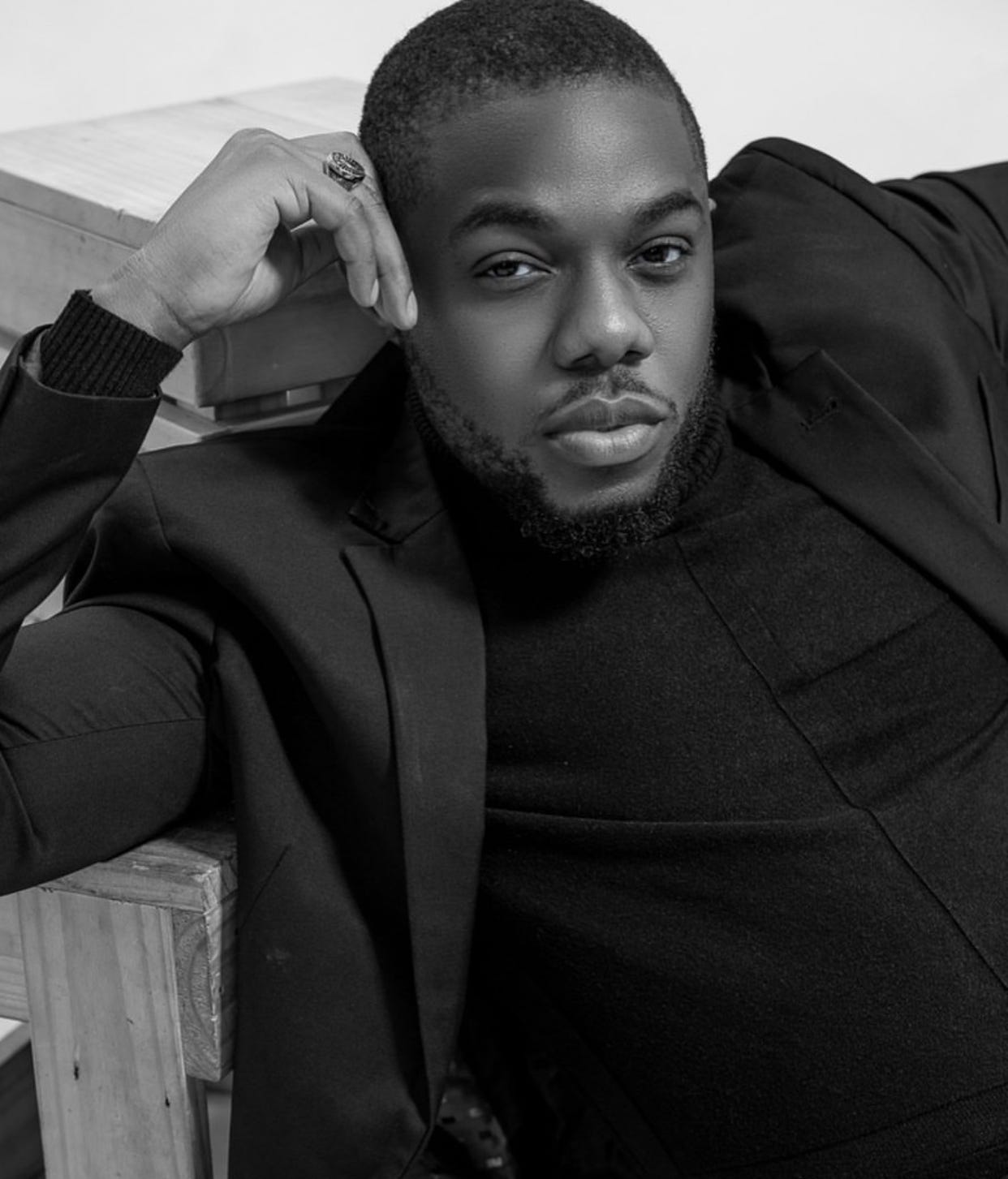In Abdul TJ’s World, Stories Will Always Matter
The writer is having the time of his life now, but he remembers where it all started. He talk about it all, including the road to Brotherhood.
The morning after Brotherhood’s eccentric premiere, I woke up to see a series of tweets directed at Abdul ‘TJ’ Tijani-Ahmed, congratulating him for co-writing what is likely enroute to becoming the latest Nollywood blockbuster. It was odd because this is an industry where screenwriters are mostly ghosts, made to disappear into oblivion once a project becomes the rave of the moment.
Perhaps it is because Jade Osiberu, the film’s producer, had taken time to thank fervently and credit all the people who worked on the film or TJ has worked out mechanics of his own, donning the kind of spirit and personality that screams “I will not hide”.
Whichever it is, the writer didn’t even believe he would be here, in 2022, heralded for writing a film this big when he could barely get anyone to look at his scripts a few years ago.
One can say TJ is thriving. A potential blockbuster he co-wrote is receiving rave reviews and he is working with Osiberu on another project plus the experimental web-series, Ricordi, he made with his friend Diane Russet is now on Africa Magic.
These are interesting times for him because up until 2019, he had submitted his scripts anywhere and everywhere, hoping to catch his break. That didn’t happen until a renowned filmmaker put out a public call for writers and he reluctantly sent a synopsis, then a script, which got him hired. “I think he put up a post on Instagram. Prior to this, I had done competitions, I would make the top 10 and attend the writing calls,” TJ said.
“I think I did that twice. The first time I went because I was curious. The second time, I remembered the food from the previous time; the food was so good. So, I wanted to go back and eat the food. Funny enough that second time was when I actually met people that I bonded with.”
Shortly before this, he had made a scrappy short film as proof of work because he was tired of people asking what he, a young entrant in the industry, had done before. “At this point I was already tired of asking people to read my script and I made my own short film. Since nobody wanted to make my film, I made my short film.”
Curious, I asked him — how does a writer know when it is time to go public? To open your work up and be vulnerable to the world. TJ chuckled, holding the smile on his face while he nursed his answer and I understood it because a writer is never sure that the work can go out to the world. You just get either very tired of the work sitting in your drafts or very hungry, like actual hunger.
“So, food that led me to that place where I actually sort of found my career. You know, the food served at the writing calls that I went back to and bonded with people I still work with till date. But before all these, I just knew I was a writer,” he added.
Like a lot of writers, he has an interesting story and it starts from when he realised he could write. “I have always been a writer, but I just didn’t know that was what I was doing. Since I was about nine years old, I would draw human beings, cut them out, give them names and story lines. I would spend weeks on these characters. My mum noticed — and I attribute the way I live my life to my mum because she exposed me to a lot of things concerning entertainment — and we were free to explore our creative side.
“In secondary school, I got those 80-leaves notebooks and wrote a story. Everybody in my class read it till the pages tore and started falling off. From that, it just evolved. I watched a lot of films growing up and I remember thinking to myself that one day, I would write a film. I just kept writing and writing.”
TJ continued honing his skills but no one paid him to write till he sold his first script. He remembers hearing about how much writers were paid in Nollywood and having low expectations of what he might be offered for his script, if anyone offered at all. When he sold his first script for a fair amount, he struggled to contain his shock.
“The filmmaker offered me a lot of money at the time, and I think my acting skills came into play then because I acted like I was not shocked but deep down I was like ‘ehn! they are really offering me money?’. He was even telling me that ‘oh! Please this is all I have, just let’s work together because I really love the story’ but I was screaming internally.”
He took the money and bought a new laptop. The computer, which has been his trusted companion all these years, was used to write Brotherhood. I made a joke about how the computer is the real hero of TJ’s story and was a little distraught when he tweeted about wanting to change it. It is understandable but laptops are so personal to writers that I almost considered writing an ode to TJ’s laptop as I was a little heartbroken that he might fling it away but he assures me otherwise.
“I want to keep it. I used it to write from that point to Brotherhood. The laptop is literally in front of me right now, and it just reminds me of where I am coming from and where I am right now because I literally built my career with the laptop. It’s not as if I’ve not been able to buy another laptop for a long time, it’s just that I just feel a sentimental attachment to this one. I don’t know – it’s just like a blessing to me.”
Midway into this moment, I point out that TJ’s first payment as a screenwriter was enough to buy him a laptop but only few writers in the industry can say the same. “The payment came as a shock because you hear and you see the horrible ways writers are treated in Nollywood. I was lucky and the experience sort of shaped me from that point. I didn’t collect anything less than that, henceforth.”
Still, despite his personal experience, he admits that it is hard to watch writers in Nollywood treated the way they are, with no appreciation “because they are the reason why everyone is on set in the first place. But it is like immediately you sell your script, you are forgotten.”
“Now, everyone thinks they can write,” TJ continues. “Maybe anybody can write but not everybody can tell a story. It is storytelling that makes a writer unique. It is this idea that writing is simple that leads to the disrespect of writers. In this industry, some people are not credited for their work and some others feel like they deserve to be given writing credit because they added two lines to a script. Everybody wants to get credit – Producer, Director, Cinematographer, Actor, anybody that just has input in the script wants to share credit with the writer.”
The positive collaborative energy is one of the reasons he cites for working with Osiberu on Brotherhood. The relationship between them started on Instagram when she followed him and reached out about an idea she wanted to make a film about.
“So, she calls me and tells me she witnessed a robbery around her area in Lekki and she had this idea for a film around that. We had a meeting to discuss the story, went on to develop it individually, brought it all together, made an outline and it took off from there. I will be honest with you, Anita. Apart from the fact that I respect Jade as a person, I also respect the project and I knew we were creating something special. I just might have written the script for free,” TJ said.
The film is an action thriller which follows two brothers on opposing sides of the law. It is an interesting premise with some of the best action sequences in Nollywood, yet. The industry usually writes stories with production and budget limitations in mind but TJ says he had to do away with that fear.
“Jade was clear and she asked me to let my imagination run wild without fear that this is Nollywood and we might not be able to produce it to scale. And that is something no producer had ever told me. I understand production limitations because I am a producer and I know everything on a script is a production cost. But she let me imagine as wild as possible,” he added.
When you strip away the spectacle of a film, it is only a writer that can truly say what the core of the story really is. Brotherhood, according to TJ, “is about two brothers who are trying their best to survive in Nigeria and it is practically two sides of the police and thief story. It's just that in this case they are twin brothers.”
I enjoy confronting people I have film conversations with, asking them what they truly think of their work and if they believe the various critiques. In this case, TJ references his journey and how far he has come as a storyteller, especially how he feels about his past works.
“I studied Chemical Engineering in school, but by 300 or 400 level, I realised that this Engineering thing is not for me. It’s entertainment I want to do,” he said. “So I sort of just evolved and tried to write a lot. Now, if I send myself what I was sending to people then, I would give myself a dirty slap.”
He is humble enough to know that he needs to do better at several things and tells me that he is on his way there, just like he has evolved from the writer he was years ago. He is on a journey but now, he wants the audience to watch Brotherhood and tell him what they think.




